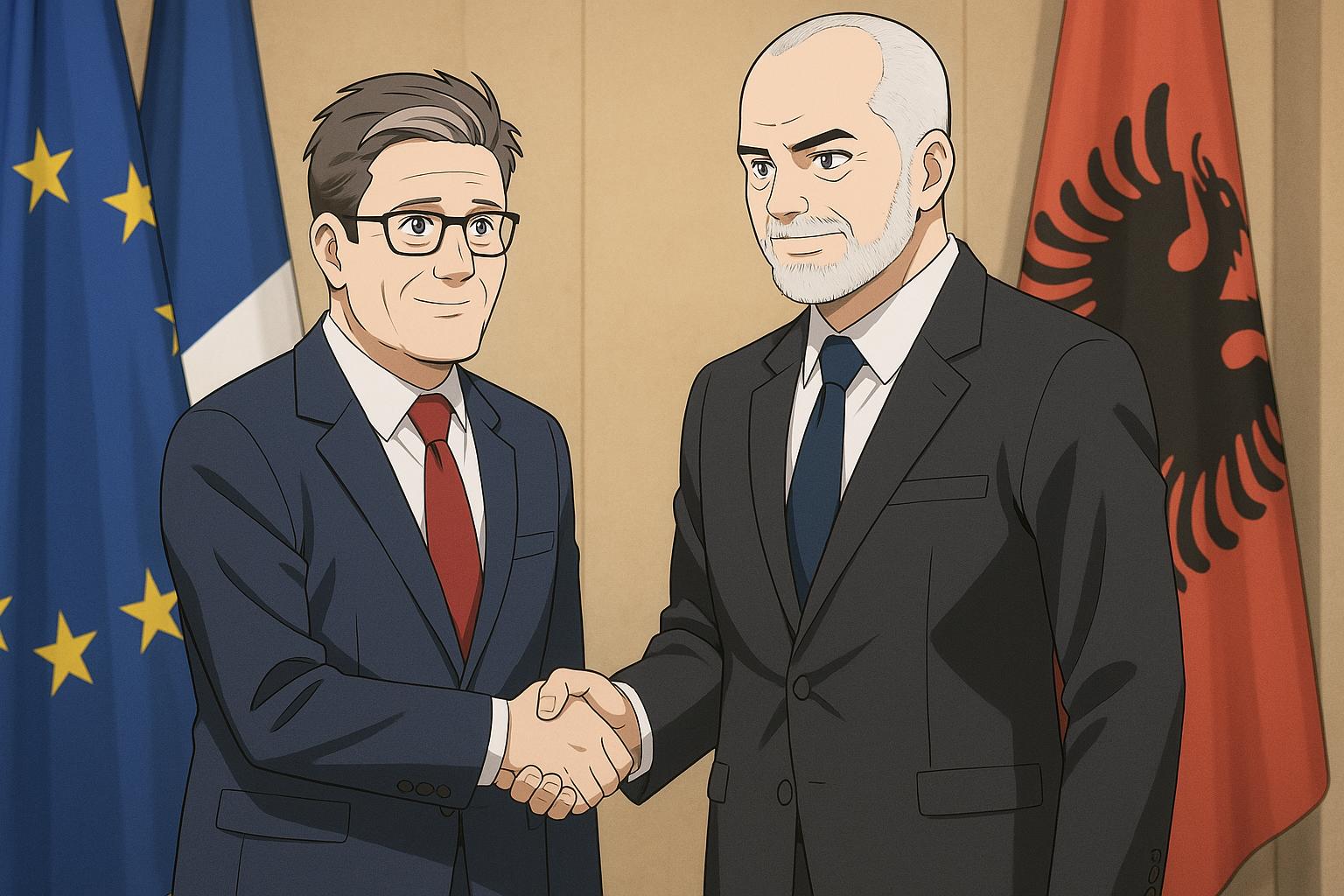During a recent visit to Albania, Prime Minister Keir Starmer signalled a new phase in British immigration policy, focused primarily on illegal migration. This trip was strategically significant as Albania has emerged as a noteworthy case study in the complex political landscape of controlling migration, particularly given the considerable reduction in the number of Albanian nationals seeking asylum in the UK. In 2022, approximately 12,500 Albanians made the perilous crossing of the English Channel in small boats; however, by early 2025, these numbers had dropped dramatically. Starmer's government has claimed success based on previous initiatives aimed at discouraging risky crossings, as well as a joint task force that effectively addresses human trafficking networks.
Starmer, seeking to build on this narrative, proposed the establishment of "return hubs" in third countries for asylum seekers whose claims have been rejected. This initiative, he argued, would allow for a more efficient deportation process, enabling those without legal standing in the UK to be relocated before they could exploit legal loopholes to prolong their stay. However, the proposal was met with immediate pushback from his Albanian counterpart, Edi Rama, who pointedly stated that Albania would not entertain any such arrangement beyond its existing agreements with Italy. Despite Starmer's assertions that these return hubs are distinct and legal, criticism from Conservative figures suggests a disconnect between ambition and practical policy alignment.
This situation brings to light the stark contrasts with previous Conservative government initiatives, notably the controversial plan to deport asylum seekers to Rwanda, which Starmer, in his current role, has categorically scrapped. The Rwanda policy aimed to deter crossings by suggesting a harsh consequence for those making the journey, but Labour's approach appears to be shaping itself as a less drastic alternative, at least in rhetoric. Starmer has additionally stressed the necessity of maintaining strong links with European nations in addressing migration issues, aiming to offer a credible immigration control strategy that has so far proven elusive for many Western nations.
The broader context of Starmer's visit also included an exploration of cooperation on criminal matters, particularly as they pertain to organized immigration crime. The UK government announced plans to donate technology designed to combat forgery and bolster security measures, aiming to complicate the operations of human trafficking networks that capitalise on vulnerable migrants. This notion of a joint effort against crime in the Western Balkans is also set against the backdrop of Albania's persistent aspirations to join the European Union, a goal that has become more pressing amid geopolitical tensions exacerbated by conflicts closer to home.
In a bid to position himself favourably within ongoing domestic political discourse regarding immigration, Starmer's emphasis on legality and partnership with other nations is coupled with the acknowledgment that immigration remains a contentious issue. Small boat crossings have reportedly surged again in early 2025, despite earlier successes against Albanian arrivals, resulting in increased scrutiny on the government’s handling of the crisis. As migration patterns shift and increase, political leaders find themselves caught in a web of historical commitments and the pressing urgency of needing to implement cohesive, practical solutions.
Starmer's visit culminated in a commitment to greater bilateral cooperation that extended beyond migration to include defence agreements, recognising the multifaceted nature of both the migration and security challenges faced by the UK and Albania alike. As the geopolitical landscape evolves, the partnership points towards a future where collaboration and shared responsibilities may offer a path to tackling persistent issues that both countries face, while also reiterating the significance of the broader political commitment to reform immigration processes.
Reference Map
- Paragraph 1: [1], [2]
- Paragraph 2: [2], [3]
- Paragraph 3: [4], [5]
- Paragraph 4: [5], [3]
- Paragraph 5: [6]
Source: Noah Wire Services
